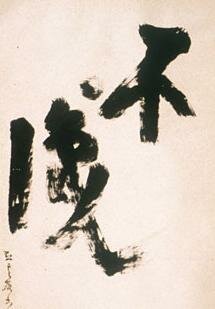The Konjaku monogatari is large collection of short stories from the Heian era. It is not considered equal to the masterpieces of the Heian period, like the Genji or the Pillow book, since it is more of a "tabloid"-style work, so it is usually not part of any curriculum in classical Japanese. However, I like it very much. Its language is relatively easy, and I think we can learn a lot about medieval Japan by reading these stories.
Here is my first translation. I'll upload the japanese text later, it is available on the net on many site, I used this page from the website of the University of Kyoto, where the Japanese text is displayed alongside with pages from the suzukahon, a wonderful and extremely readably manuscript.
Not long ago, during the reign of emperor ... a thief got into the storehouse of the Western Market. When the officiers of the kebiishi (statutory office) heard that a thief got into the storehouse and secluded him there, they quickly surrounded it in order to capture him.
They were led by higher magistrate ..., clad in blue clothes, carrying a bow and arrows on his back.
There were among the men a freed prisoner, holding a halberd, who stood near the door of the storehouse. The thief signaled to this man to come closer. When he came closer, the thief told him: "Tell the honorable magistrate to deign to dismount his horse and come closer. I have something to tell to his honorable ears in secret.
The freed prisoner went back to the magistrate and reported what the thief has said to him. When the magistrate heard this, he started towards the door of the storehouse. The other officers said: "We should not trust him", and did not move. But the magistrate thought to himself: "this might be of some consequence." He descended from his horse and went to the door of the storehouse.
The thief opened the door and told the magistrate: "Deign to enter, sir." The magistrate entered the storehouse, and the thief locked the door from within.
The officers, when saw this, said: This is very strange. Inside the store, a thief is hiding, we came to guard the door so that we could capture him, and the magistrate is called by the thief, he enters the store and [the entrance] is blocked from within, and he even condescend to talk with the thief! There is no such thing in the world! - they said. And they did not refrain from angrily criticizing the magistrate.
After a certain time, the door of the storehouse opened, the magistrate mounted his horse, and returned to his men. "What I heard was of some consequence", he said [to his men]. "For the time being, this manhunt must not be continued. Withdraw immediately. This is an order in the name of the Emperor."
The officers left, on hearing this. The magistrate stayed there alone. The sun was setting already, and he went again to the store and told the thief the imperial command. When the thief heard it, he loudly sobbed, without [trying to] control his feelings.
The thief left the storehouse, and nobody knows where he went. And nobody knows the secret reason of his release either, at least this is how the story has been told and passed on.
(C) 2007, Zoltan Barczikay (translator).
